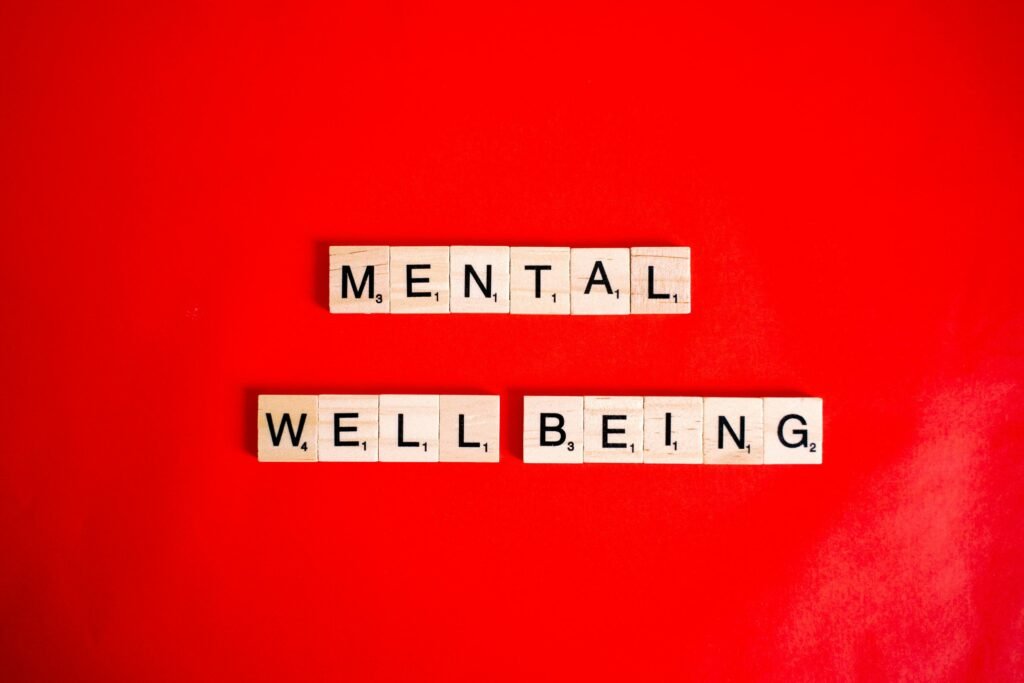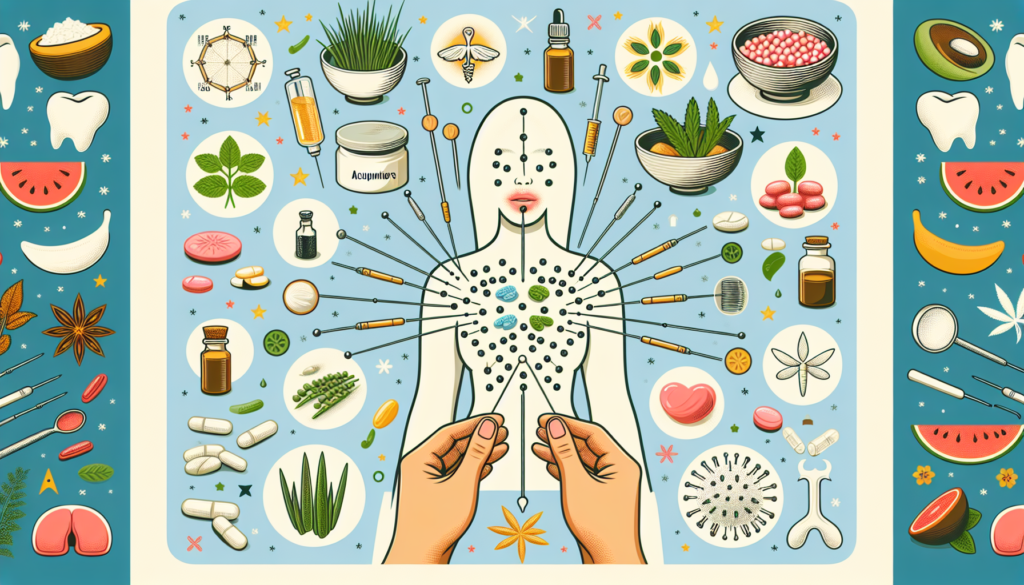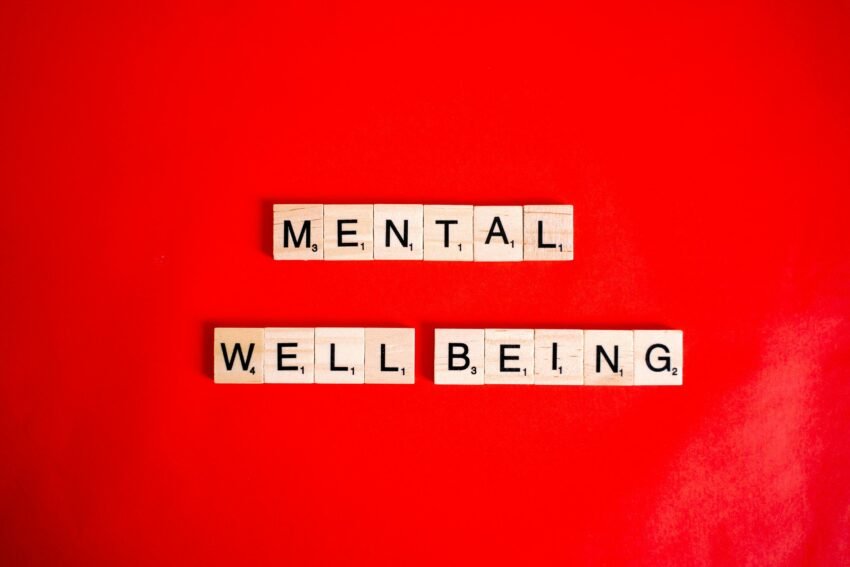Did you know that alternative medicine may have a place in maintaining your dental health? Many people are exploring natural remedies and holistic approaches to oral care, seeking alternatives to traditional dental practices. From herbal remedies to oil pulling, a variety of holistic techniques are gaining popularity as potential options for promoting oral health. In this article, we will explore the use of alternative medicine for dental health and delve into some of the potential benefits and risks associated with these practices. So, if you’re curious about how alternative medicine can play a role in your dental care routine, keep reading to discover more!

Benefits of Alternative Medicine for Dental Health
When it comes to dental health, alternative medicine offers a range of benefits that can complement conventional treatments. From Ayurveda to acupuncture, there are various alternative approaches that can contribute to maintaining good oral health. Let’s explore some of these options and how they can positively impact your dental well-being.
Ayurveda
Ayurveda, the traditional Indian system of medicine, emphasizes the importance of balancing the body, mind, and spirit for overall health. In terms of dental health, Ayurveda offers natural remedies and preventive measures that can be beneficial. Ayurvedic practices such as oil pulling, using herbal toothpaste, and consuming herbs like licorice and neem, are believed to help with oral hygiene and promote healthy gums.
Homeopathy
Homeopathy is a holistic approach to medicine that focuses on stimulating the body’s self-healing mechanisms. In relation to dental health, homeopathy can provide natural remedies for toothaches, gum infections, and other common dental issues. Homeopathic remedies like Arnica montana and Hypericum perforatum are known for their potential to reduce pain and inflammation, offering relief to those experiencing dental problems.
Herbal Medicine
Herbal medicine has been used for centuries to treat various ailments, including dental issues. Plants such as chamomile, peppermint, and sage have properties that can promote oral health. Chamomile, for example, has anti-inflammatory properties and can help relieve pain associated with toothaches and gum infections. Peppermint, on the other hand, has antimicrobial properties that can combat bacteria causing bad breath.
Holistic Dentistry
Holistic dentistry takes a comprehensive approach to oral health, considering not only the teeth and gums but also the overall well-being of the individual. This branch of dentistry focuses on using natural and biocompatible materials for dental procedures and avoiding the use of harmful substances like mercury in fillings. Holistic dentists also emphasize the importance of proper nutrition and lifestyle choices in maintaining good oral health.
Acupuncture
Acupuncture, an ancient Chinese therapy, involves the insertion of thin needles into specific points on the body to restore balance and promote healing. While acupuncture is not directly targeted at dental problems, it is believed to work by improving the flow of energy throughout the body, which may indirectly benefit oral health. Acupuncture can help reduce stress and anxiety, which are known to contribute to dental issues such as teeth grinding and temporomandibular joint disorder (TMJ).
Natural Remedies for Common Dental Issues
Alternative medicine provides natural remedies that can effectively address common dental issues. These remedies are often gentler on the body compared to conventional treatments and can provide relief without the potential side effects associated with medications. Let’s explore some natural remedies for toothaches, gum infections, bad breath, and tooth sensitivity.
Toothaches
Toothaches can be excruciating, and alternative medicine offers several natural remedies to alleviate the pain. Clove oil, for example, is an age-old remedy known for its analgesic properties. Applying a small amount of clove oil directly to the affected tooth can help numb the area and provide temporary relief. Additionally, rinsing your mouth with warm saltwater can help reduce inflammation and provide some relief.
Gum Infections
Gum infections can cause discomfort and lead to more serious dental problems if left untreated. Tea tree oil, renowned for its antimicrobial properties, can be used as a natural remedy for gum infections. Dilute a few drops of tea tree oil in water and use it as a mouthwash after brushing your teeth. This can help reduce the inflammation and kill bacteria that contribute to gum infections.
Bad Breath
Nobody enjoys dealing with bad breath. Alternative medicine offers several natural remedies to combat this issue. One popular option is using baking soda as a mouthwash. Baking soda neutralizes odors and can help eliminate the bacteria that cause bad breath. Another option is drinking green tea, which contains compounds that can help freshen your breath and reduce oral bacteria.
Tooth Sensitivity
Tooth sensitivity can be bothersome, especially when eating or drinking hot or cold substances. A natural remedy for this issue is using desensitizing toothpaste. These toothpastes contain ingredients like potassium nitrate or strontium chloride, which help block nerve signals and reduce sensitivity. It’s important to note that tooth sensitivity may also be a symptom of an underlying dental problem, so it’s crucial to consult a dentist for a proper diagnosis.
Preventive Measures with Alternative Medicine
In addition to providing remedies for dental issues, alternative medicine also places a strong emphasis on preventive measures. Incorporating these practices into your oral hygiene routine can help maintain good dental health. Let’s explore some of these preventive measures, including oil pulling, herbal mouthwashes, and dietary changes.
Oil Pulling
Oil pulling is an ancient Ayurvedic practice that involves swishing a tablespoon of oil in your mouth for about 20 minutes. This technique is believed to pull toxins and bacteria from the mouth, improving oral hygiene. Coconut oil is commonly used for oil pulling due to its antimicrobial properties. Regular oil pulling can help reduce plaque buildup, prevent cavities, and promote healthy gums.
Herbal Mouthwashes
Using herbal mouthwashes is an alternative to conventional alcohol-based mouthwashes. These natural alternatives can provide effective oral care without the potential side effects of alcohol-based products. Options like chamomile, sage, and peppermint mouthwashes can help soothe gums, freshen breath, and kill harmful bacteria. Additionally, these herbal mouthwashes do not contain artificial colors or harsh chemicals, making them a safer choice for long-term use.
Dietary Changes
What you eat can significantly impact your dental health. Alternative medicine highlights the importance of a balanced diet for oral well-being. Including foods that are rich in vitamins, minerals, and antioxidants can help support strong teeth and gums. Foods like leafy greens, carrots, and apples can naturally help clean teeth and stimulate saliva production, which aids in fighting bacteria. Avoiding excessive sugar and acidic foods and drinks can also help prevent tooth decay and enamel erosion.
Controversies Surrounding Alternative Medicine for Dental Health
While alternative medicine offers various benefits for dental health, it is important to consider the controversies and potential drawbacks associated with these practices. Understanding the potential risks and limitations can help you make informed decisions about your oral care. Let’s delve into some of the controversies surrounding alternative medicine in dentistry.
Lack of Scientific Evidence
One of the main controversies surrounding alternative medicine for dental health is the lack of scientific evidence supporting its effectiveness. Many alternative treatments and remedies have not undergone extensive clinical trials or rigorous scientific studies. This lack of evidence makes it challenging to determine the true efficacy of these practices. It is important to approach alternative medicine with an open mind, but also with a healthy dose of skepticism until further research can provide more concrete evidence.
Safety Concerns
Alternative medicine practices may have safety concerns that need to be taken into consideration. Some remedies or treatments may interact with certain medications or have contraindications for individuals with specific health conditions. It is crucial to consult with a healthcare professional, such as a dentist or a qualified alternative medicine practitioner, to ensure that the chosen approach is safe and appropriate for your specific needs.
Misleading Claims
Another controversy surrounding alternative medicine in dentistry is the presence of misleading claims. Some alternative medicine products or practitioners may make bold claims about their effectiveness without sufficient scientific backing. It is important to critically evaluate the claims and look for supporting evidence or research before embracing any alternative medicine practice in the dental field.

Integration of Alternative and Conventional Dentistry
Rather than viewing alternative medicine and conventional dentistry as separate entities, an integrated and collaborative approach can provide the best of both worlds. In many cases, alternative medicine practices can complement conventional dental treatments, resulting in comprehensive and holistic care. Let’s explore how alternative medicine can be integrated into conventional dentistry through complementary treatments and a collaborative approach.
Complementary Treatments
Alternative medicine can be used as complementary treatments alongside conventional dental procedures. For example, acupuncture can help manage dental anxiety and reduce pain before, during, or after a dental procedure. Herbal remedies can be used to support the healing process after a tooth extraction or gum surgery. By using alternative medicine treatments in conjunction with conventional dental care, patients may benefit from enhanced comfort, reduced side effects, and improved overall outcomes.
Collaborative Approach
A collaborative approach between conventional dentists and alternative medicine practitioners can lead to more comprehensive and personalized dental care for patients. Dentists can work in tandem with alternative medicine practitioners to develop holistic treatment plans that address both the dental issue itself and the underlying factors contributing to the problem. This collaborative approach can provide patients with a wider range of treatment options and a more integrated approach to their dental health.
Research and Studies on Alternative Medicine in Dentistry
As alternative medicine gains popularity, research and studies are being conducted to evaluate its effectiveness in dental care. These studies aim to provide a scientific basis for the integration of alternative medicine into conventional dental practices. Let’s take a closer look at the current research and studies on alternative medicine in dentistry, including the effectiveness of herbal remedies, comparison with traditional treatments, and patient satisfaction.
Effectiveness of Herbal Remedies
Several studies have investigated the effectiveness of herbal remedies in addressing dental issues. For example, research has shown that chamomile mouthwash can effectively reduce gingival inflammation and improve periodontal health. Studies have also demonstrated the antibacterial properties of certain herbs, such as sage and thyme, which can be beneficial in preventing dental infections. However, more research is needed to fully understand the mechanisms and benefits of herbal remedies in dental health.
Comparison with Traditional Treatments
Some studies have compared the effectiveness of alternative medicine treatments to traditional dental treatments. For instance, a study on tooth sensitivity compared the use of a desensitizing toothpaste containing strontium chloride to a conventional fluoride toothpaste. The results showed that both treatments were equally effective in reducing sensitivity. These types of studies provide valuable insights into the potential benefits of alternative medicine treatments and their potential role in dental care.
Patient Satisfaction
Research has also focused on measuring patient satisfaction with alternative medicine approaches in dental care. Studies have found that patients who received complementary alternative treatments in conjunction with conventional dental care reported higher levels of satisfaction compared to those who received traditional treatments alone. This indicates that alternative medicine practices have the potential to improve patient experiences and overall satisfaction with their dental care.

The Role of Dentists in Recommending Alternative Medicine
Dentists play a crucial role in recommending alternative medicine practices to their patients. As trusted oral health professionals, dentists can help educate and guide patients in making informed decisions about alternative treatments. Let’s explore the responsibilities and considerations dentists should consider when recommending alternative medicine approaches.
Awareness and Education
Dentists should stay updated on the latest research and evidence surrounding alternative medicine practices in dentistry. This knowledge will equip them to provide accurate and reliable information to patients when discussing alternative treatment options. By promoting awareness and educating patients about the benefits, risks, and limitations of alternative medicine, dentists can empower patients to make informed choices about their oral health.
Evaluation of Patients’ Needs
Dentists are skilled in evaluating patients’ dental needs and determining the most appropriate treatment options. When considering alternative medicine practices, dentists should evaluate the individual patient’s specific dental condition, health history, and preferences. This evaluation will help dentists determine whether alternative medicine can be a suitable and effective option for the patient’s unique situation.
Professional Ethics
Dentists have an ethical responsibility to provide evidence-based recommendations and prioritize patient safety and well-being. When recommending alternative medicine practices, dentists should adhere to professional ethics and base their recommendations on scientific evidence, patient needs, and the overall benefit to the individual’s oral health. Dentists should also discuss potential risks and limitations associated with alternative medicine to ensure patients can make fully informed decisions.
Potential Risks and Limitations of Alternative Medicine
While alternative medicine can offer benefits for dental health, it is crucial to acknowledge the potential risks and limitations associated with these practices. Understanding these factors can help individuals make informed decisions about their dental care. Let’s discuss some of the potential risks and limitations of alternative medicine in dentistry.
Allergies and Side Effects
Just like any other treatment, alternative medicine practices can have potential side effects or risks. It is important to be aware of any possible allergies to herbal remedies or other alternative treatments. Some individuals may experience allergic reactions, irritation, or adverse effects when using certain herbal products or undergoing specific alternative procedures. It is crucial to consult a healthcare professional before starting any new alternative treatment to minimize the risk of negative reactions.
Lack of Regulation
One of the limitations of alternative medicine is the lack of regulation in some practices and products. Unlike conventional dentistry, which follows strict regulatory standards, alternative medicine may not have the same level of oversight. This can create challenges in ensuring the quality, safety, and efficacy of alternative medicine treatments. It is essential to do thorough research, seek recommendations, and consult reputable practitioners to minimize the risk of encountering unregulated or unsafe treatments.
Inability to Address Severe Dental Problems
Alternative medicine approaches may not be sufficient to address severe dental problems that require immediate or intensive treatment. Conditions such as deep cavities, advanced gum disease, or dental trauma often require conventional dental interventions to effectively resolve the issues. Alternative medicine practices can be valuable as complementary or preventive measures, but they may not always be a suitable substitute for conventional dental care in more severe cases.

Patient Experiences and Testimonials on Alternative Dental Treatments
Patient experiences and testimonials can provide valuable insight into the effectiveness and potential benefits of alternative dental treatments. While anecdotal evidence should be interpreted with caution, it can offer a glimpse into how individuals have personally benefited from these practices. Let’s explore some common themes in patient experiences and testimonials on alternative dental treatments.
Personal Stories and Anecdotes
Many individuals have shared personal stories and anecdotes of how alternative dental treatments have improved their oral health and overall well-being. Whether it’s finding relief from chronic toothaches or experiencing improved gum health, these stories can inspire others to explore alternative options. It is important to approach personal stories with an open mind, recognizing that individual experiences may vary, and scientific evidence is still needed to validate these claims.
Improved Well-being
Patients often report an overall sense of improved well-being after incorporating alternative dental treatments into their oral care routine. For example, individuals who practice oil pulling regularly may notice healthier gums, improved breath, and a general feeling of oral cleanliness. This improvement in well-being can be attributed to the holistic approach that alternative medicine takes, addressing not only the physical symptoms but also the emotional and spiritual aspects of dental health.
Long-term Results
Some patients have reported long-term positive results after using alternative dental treatments. These individuals often highlight the sustainable nature of alternative medicine practices and how they have experienced lasting benefits compared to conventional treatments. While more research is needed to fully understand the long-term impact of alternative dental treatments, these patient testimonials offer encouraging insights into the potential for alternative medicine to contribute to ongoing oral health.
Conclusion
Alternative medicine presents a range of benefits for dental health, offering natural remedies, preventive measures, and complementary treatments. Practices like Ayurveda, homeopathy, herbal medicine, holistic dentistry, and acupuncture offer holistic approaches to oral health. Natural remedies such as oil pulling, herbal mouthwashes, and dietary changes can provide effective solutions for common dental issues. While controversies exist, the integration of alternative and conventional dentistry through a collaborative approach can yield comprehensive care. Ongoing research and studies are shedding light on the effectiveness of alternative medicine in dentistry, patient satisfaction, and the role of dentists in recommending alternative treatments. It is important to consider potential risks and limitations, seek professional guidance, and acknowledge patient experiences and testimonials in making informed decisions about alternative dental treatments. In conclusion, alternative medicine, when used wisely and in conjunction with conventional dental care, has the potential to enhance dental health and overall well-being.



